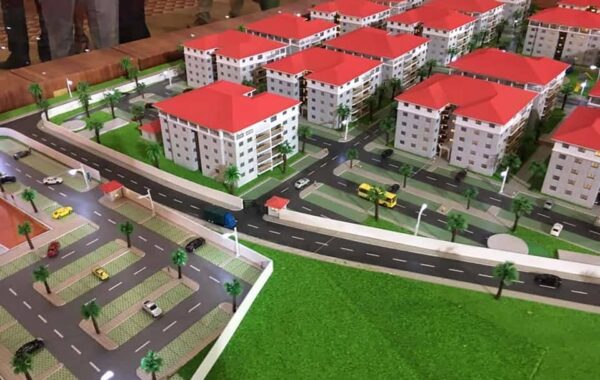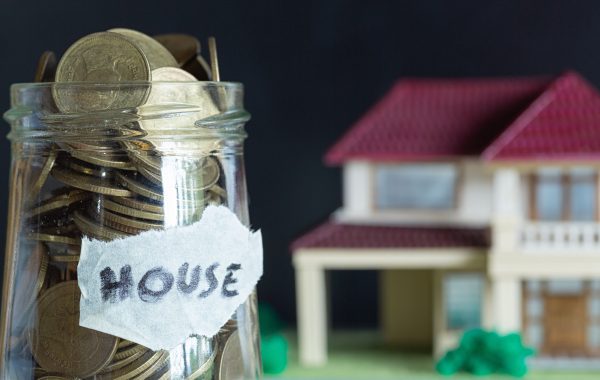
Q3 2025 Real Estate Market Report for Ghana
Q3 2025 Real Estate Market Report for Ghana reveals property values surging across urban centres with extraordinary momentum. If you’re tracking Ghana’s property sector or considering where to place your next investment, understanding these market shifts means the difference between securing premium returns and missing the window.
Property Values Climb on Economic Stability
Ghana’s real estate delivered exceptional Q3 2025 performance. Property values rose 8-12% year-over-year in urban centres. This wasn’t speculation driving prices. The fundamentals tell the story.
Inflation dropped to 9.4% in September 2025. That’s the lowest reading in four years, down from 21.2% in April. The Bank of Ghana cut rates aggressively, bringing the policy rate to 21.5% from 29% at the start of 2024. Average lending rates fell to 24.1%. When borrowing becomes more accessible, buyers enter the market.
The cedi appreciated 21% against the dollar through September. This currency strength reduced forex risk for dollar-denominated transactions. It made imported construction materials relatively more affordable during appreciation periods. Foreign reserves reached $10.73 billion, providing 4.55 months of import cover.
GDP growth hit 6.3% year-over-year in Q2 2025. The non-oil sectors expanded 7.8%. Services led at 9.9% growth. Building permits increased 15% year-over-year. These aren’t abstract numbers. They represent real construction activity and market confidence.
Prime Accra Locations See Strongest Gains
East Legon, Cantonments, and Airport Residential experienced 20-25% cumulative appreciation since 2020. Luxury apartments in these prime locations range from $250,000 to $400,000. Three-bedroom houses command $450,000 to $600,000.
East Legon delivers the highest rental yields in Accra at 9-10%. Airport Residential and Cantonments produce 8-9% yields. These returns significantly exceed developed market benchmarks. Net yields after expenses sit between 6-9%.
Average prices per square meter in central Accra reach $1,500-$1,600. Ultra-luxury properties in Cantonments command over $2,000 per square meter. Airport Residential Area prices range from $1,400-$1,800 per square meter.
West Hills Mall area developments gained particular attention. Eden Heights positioned its 1,272 luxury apartment units approximately one minute walk from Ghana’s largest shopping center. The development offers one to four-bedroom apartments and penthouses with Grade A finishing. Rent-to-own schemes broaden buyer accessibility beyond traditional mortgage constraints.
Suburban Corridors Offer Value Entry Points
The suburban growth corridor of Oyarifa, Ayi Mensah, and Dodowa presents affordability with appreciation potential. Average three-bedroom houses in Oyarifa cost approximately GHS 500,000 ($41,700). That represents 40-50% savings versus central Accra.
Land prices in Ayi Mensah average $20,000 per plot for 70×100 feet parcels. Oyarifa plots command $20,000-$22,700 for titled land. Dodowa offers the most affordable entry points with plots from GHS 10,000-22,000.
Infrastructure improvements drove this suburban shift. The completed Pokuase four-tier interchange reduced journey times from two hours to 30 minutes. The ongoing Accra-Tema Motorway expansion enhances connectivity. When commute times drop, suburbs become viable.
Diaspora Investment Powers Market Growth
Diaspora investment represents the market’s most significant growth driver. Official remittances reached $6.65 billion during 2024, up from $5.11 billion in 2023. Actual flows including informal channels reached an estimated $11.5 billion. This exceeds foreign direct investment by 4x.
Approximately three million Ghanaians in diaspora channel significant portions to real estate as stable inflation hedges. Diaspora-specific products offer distinct advantages. USD and Sterling-denominated mortgages average 11.5%. That’s less than half the local-currency rates of 24-36%.
Transaction volumes reflect this investment demand. 35% of 2024 residential purchases were made for investment purposes. High-end properties saw 4% transaction volume despite prohibitive mortgage rates for most local buyers. Cash purchasers remained active.
Commercial and Industrial Sectors Show Strong Momentum
Commercial property investments demonstrated 12% year-over-year growth projections for 2025. Office absorption rates increased approximately 5% year-over-year. Grade-A office space in Airport City, Ridge, and the Central Business District experienced strongest demand.
Prime office rental rates in Accra’s CBD and premium areas range from $20-40 per square meter per month. Coworking space demand accelerated. Regus opened its newest Accra location at the OMA Building on October 1, 2025.
The industrial and logistics sectors experienced unprecedented demand. Industrial land prices in Accra East and Tema increased 12% year-over-year. Modern warehouse occupancy rates reached 83% in H1 2025, up from 75% in 2024. The Boankra Inland Port development reached 82% completion for Phase 1.
Market Challenges Require Disciplined Management
Construction costs increased substantially through 2025. Cement prices showed increases ranging from 10-45% depending on timing and location. Current retail prices typically range GHS 70-85 per 50kg bag.
Land ownership disputes represent Ghana’s most significant challenge. 57% of all court cases are land-related. Average resolution times stretch 10-20 years. Approximately 90% of land remains unregistered. Comprehensive title searches become non-negotiable.
Mortgage penetration remains among the world’s lowest at 0.32-0.5% of GDP. Only 0.8% of households finance housing through mortgages. This forces most Ghanaians toward incremental self-building over years or decades.
Your Next Steps in Ghana’s Growing Market
Q4 2025 and 2026 outlook remains positive. The World Bank projects 5.8% GDP growth for 2025-2026. Property values should rise 10-12% in 2025, outpacing inflation by approximately 3.2 percentage points. The 1.8 million national housing deficit ensures structural demand persists.
Best opportunities include affordable housing addressing massive deficits, commercial office and retail capturing 12% growth, and luxury residential serving diaspora buyers. Five to ten-year investment horizons optimise returns.
Five Key Questions About Ghana’s Q3 2025 Market
What drove property value increases in Q3 2025?
Inflation dropping to 9.4%, Bank of Ghana cutting rates to 21.5%, and the cedi appreciating 21% against the dollar created favourable conditions. GDP growth of 6.3% and building permits increasing 15% demonstrated market confidence.
Which locations offer the best rental yields?
East Legon delivers 9-10% yields, the highest in Accra. Airport Residential and Cantonments produce 8-9% yields. These returns significantly exceed developed market benchmarks.
How does diaspora investment affect the market?
Diaspora remittances of $6.65 billion in 2024 exceeded foreign direct investment by 4x. Diaspora buyers access USD and Sterling mortgages at 11.5%, less than half local rates of 24-36%.
What are the main risks for investors?
Land disputes affecting 57% of court cases, construction costs rising 10-45%, and mortgage penetration at only 0.32-0.5% of GDP present challenges. Comprehensive due diligence becomes essential.
Where should investors focus in 2026?
Affordable housing addressing the 1.8 million unit deficit, commercial office and retail with 12% growth projections, and luxury residential near infrastructure improvements offer strong potential.
Explore luxury living at Eden Heights, where Grade A finishing meets world-class amenities one minute from West Hills Mall. Our rent-to-own schemes make premium Accra living accessible. Visit us to discover how your investment benefits from Ghana’s strongest residential corridor.


